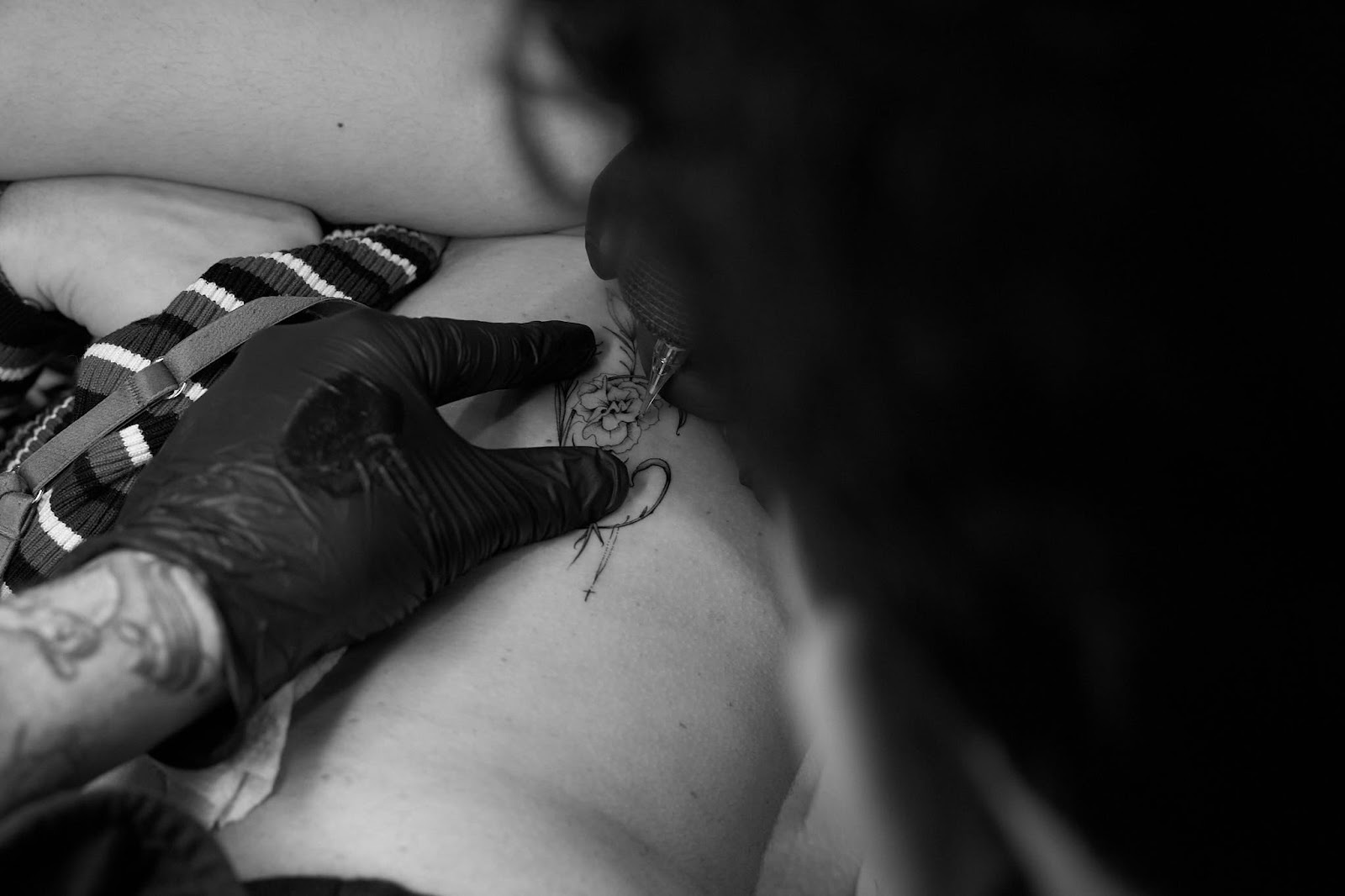Inked Insights
The Tattooist Act: Tattoos in South Korea Enter a New Era

Share this post!
The Tattooist Act: A New Era for Tattoos in South Korea
Major news out of South Korea: tattooing by non-medical professionals is now officially legal. For decades,tattoo artiststhere created in the shadows, criminalized for their craft even as their work shaped global tattootrends. With the passing of the “Tattooist Act,” those days are coming to an end, and the cultural impact is going to reach far beyond Korea’s borders.
Unpacking the Tattooist Act: Legalizing Tattooing in South KoreaThe Legal Shift
On September 25, 2025, Korea’s National Assemblyvoted overwhelmingly to legalize tattooing outside the medical field. Up until now, the law required artists to hold a medical license, a rule in place since 1992, meaning anyone else who tattooed risked huge fines or even prisontime. Despite this, the demand for tattoos in South Koreanever stopped. The country’s tattoocommunity built a thriving underground scene, with clients willing to seek out artists in hidden studios tucked away in back alleys of Seouland beyond.
But this new legislation doesn’t flip the switch overnight. There’s a two-year transition period before it fully takes effect, and once it does, artists will need to be licensed, maintain hygienestandards, and follow new regulations. Tattooremoval remains restricted to medical professionals, but for the first time in over thirty years, tattooers in Korea will be able to open their doors, hang their signs, and practice without fear of punishment.
A Long Road to Recognition
This win didn’t come easily. Back in 1992, Korea’s National Assembly ruled that tattooing was a medical procedure, a decision that defined the next three decades. While tattoo artistsin Europe, the U.S., and Japan were pushing styles and building mainstream visibility, Koreantattooers were working behind locked doors and shuttered windows.
The contradictions were striking. Koreantattoo artistsbuilt international reputations, often traveling abroad for guest spots or conventions, but at home their work was technically illegal. Tattoo artistslike Doy, who became a vocal activist and organizer, kept the pressure on the government for reform. Public petitions, union activity, and growing social acceptance all chipped away at the old laws until change finally became inevitable.
And public opinion mattered. Among younger Koreans, tattoos have become almost synonymous with individuality and style. K-pop idols, athletes, and influencers flaunted their ink even when it had to be blurred out on TV. Fashion campaigns and music videos leaned on tattooculture to signal edge and authenticity. The old stigmas never fully disappeared, but they stopped holding as much power.
Why This Matters
Korea’s tattooscene has always carried extra weight. For generations, tattoos were tied to punishment, crime, or social rebellion. Yet at the same time, Koreantattoo artistshave pushed the boundaries of the craft, blending traditional motifs with modern design and attracting fans from around the globe. Many of the most influential tattoo artistsin recent years have come out of Korea, despite the risks they faced.
Legalization doesn’t just mean safety from fines. It means validation. It’s recognition that tattooing is art, not a medical procedure, and that the artists who dedicate their lives to it deserve legitimacy. It also means job security; artists can now build careers without the constant fear that one police raid could end it all. For clients, it means walking into a shop openly instead of sneaking into the backrooms. For the global tattooworld, it means the full force of “K-tattoo” can finally step into the spotlight.
The Cultural Impact
The change is going to reshape Korea’s tattooculture. Artists can finally work in the open, expand their studios, and take on apprentices without worrying about raids. Clients who once hesitated will be able to book sessions freely. And as stigma softens, tattoos are likely to become more visible across workplaces, media, and everyday life.
Globally, this could put Koreantattooing on an even bigger stage. Just as K-pop and K-fashion have become cultural exports, expect K-tattooto gain more recognition, more collaborations, and more influence at international conventions. The creativity that’s been forced underground for decades is about to be unleashed.
It also means Korea could become a tattoodestination. Until now, travelers had to be cautious; booking an appointment often felt like finding an after-hours speakeasy. With legalization, tattootourism is likely to grow, bringing in visitors eager to get a piece of Koreanartistry while experiencing the country’s vibrant culture.
What’s Next for Tattooing in South Korea
The next two years will be critical. The licensing system, exams, and hygieneregulations will decide how smooth the transition is. If implemented well, they’ll protect both artists and clients. If the rules are too restrictive, they could make it harder for independent artists to thrive. And while the law may shift perceptions, it’ll take time for older stigmas around tattoos to fade completely.
There’s also a broader question: how will this affect the global tattoocommunity? In some ways, the legalization of tattooing in Korea reflects a larger trend of ink moving from counterculture to mainstream worldwide. What once marked outsiders, rebels, or subcultures is now part of boardrooms, sports arenas, and fashion magazines. Korea’s decision adds fuel to that evolution, but it also raises the stakes. When art becomes mainstream, how do we protect its edge and authenticity?
For Koreantattoo artists, though, the moment is less about philosophy and more about freedom. After decades of working behind closed doors, they’ll finally have the right to work in the open. That shift is going to inspire a wave of energy, experimentation, and visibility that’s long overdue.
A Global Perspective
Korea’s move also highlights how varied tattoolaws are around the world. In Japan, tattooing has lived in a legal gray zone, tied up in questions about medical licensing and still carrying social stigma. In the U.S. and Europe, regulations are more standardized but still vary from state to state or country to country.
By formally recognizing tattooing as a profession, complete with licensing and safety standards, Korea is sending a signal that could influence other countries with restrictive rules. And with its outsized influence on global culture, what happens in Korea rarely stays in Korea. Koreantattooing could become the next major export in the country’s cultural wave.
Beyond Legality: A Cultural Turning Point
This moment is bigger than a new law on the books. It’s the start of a shift in how Korea sees tattooing. For years, Koreantattooers carried their art underground, often at great personal risk. Now, with the weight of law finally lifted, they can create openly, proudly, and unapologetically.
The ink has always been there. The difference now is that it can finally be seen, not hidden in backrooms, not blurred out on screens, but celebrated as part of Korea’s evolving cultural identity.
South Korea’s move proves tattooculture can’t be silenced. Celebrate the future of ink with us — Check out ourtattoo artistsandbook a free consultationfor your next piece.
___
References
https://apnews.com/article/south-korea-tattoos-ban-law-fa7839cbcfc05d94f449dcec598346f8
https://edition.cnn.com/2025/09/24/style/south-korea-tattooing-challenges-legalization-intl-hnk-dst
https://koreajoongangdaily.joins.com/news/2025-09-26/national/socialAffairs/National-Assembly-passes-historic-Tattooist-Act-legalizes-tattooing-by-nonmedical-professionals/2408897
https://www.bbc.com/news/articles/cp8jz0vrrp4o
https://www.nbcnews.com/world/asia/south-korea-passes-landmark-bill-legalize-tattoo-artists-rcna233838


